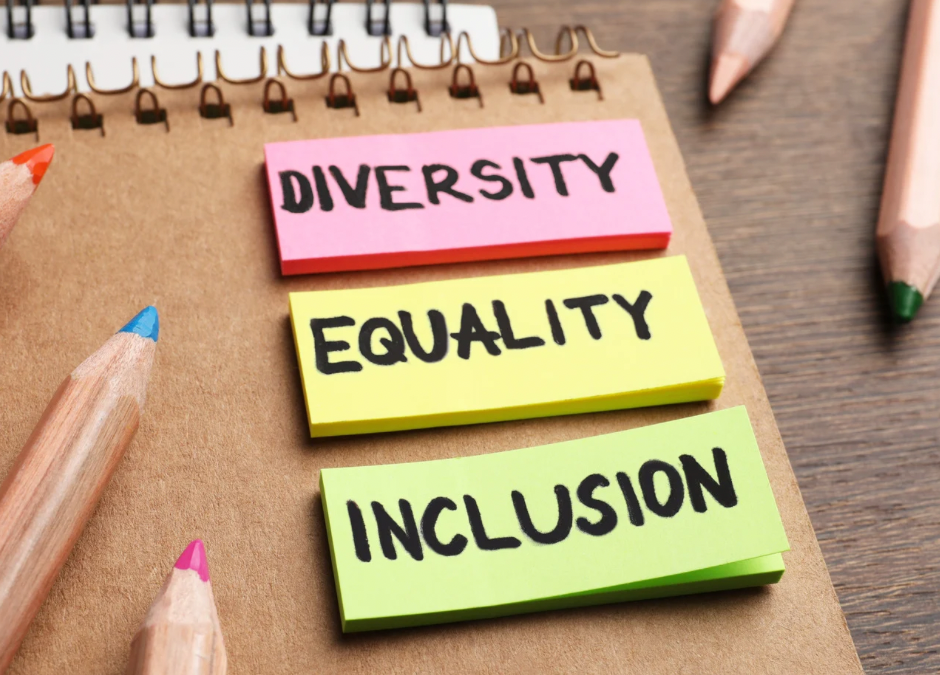
The Legal Fight for Equal Pay
September 16, 2024
Ždanoka v. Latvia (No. 2) [2024]
September 19, 2024By Reva Naidu.
Reading time: three minutes
#impactmatters.
In honour of this year’s National Inclusion Week, taking place from 23 September to 29 September, we take a look at how UK law firms can create lasting change in the legal profession. Specifically changes that fosters diversity, increasing access to the profession while embracing new ideas, backgrounds, and cultures – that ingrain themselves within the profession, culminating in an inclusive and cross-cultural industry, well- equipped to serve its equally diverse and global clientele.
According to the Solicitors’ Regulation Authority, just 19% of attorneys in the UK identify as Asian, Black, or belonging to another minority ethnic group. Inclusion in the legal profession would usually involve providing all aspiring legal professionals with the opportunity to prove themselves as capable and qualified. Yet, it’s important to note that equal opportunity does not necessarily result in an equitable outcome – therefore, firms must make sure to respect diverse professionals and students, for the value they bring through their individuality, creativity, and unique mindsets. Creating an opportunity may not be enough – underrepresented groups must be proactively welcomed and inspired; they must be made to feel like they ‘belong’ in an industry rife with imposter syndrome.
Firms may aspire to do this through:
- mentorship programmes;
- promoting transparency within the early careers hiring processes; and by
- establishing clear and concrete diversity and inclusion (D&I) policies to remove systematic barriers within the industry.
The following paragraphs contain examples of standout firms, chambers, and legal organisations who have successfully bolstered inclusion, through the aforementioned activities.
- Mentorship Programmes
Through the 10,000 Black Interns (10KBI) Program, the 10,000 Interns Foundation offers Black students and graduates paid internships within the legal industry to address the under-representation of Black talent in a variety of areas and to assist Black graduates and students. The Bar Council has supported the Bar’s steering committee in this endeavour, allowing Black students to experience the Bar and make informed career choices, supplemented by a wholesome and fulfilling learning experience.
- Transparent Hiring Methods
Blind-recruitment processes may be beneficial in promoting transparency and inclusion in the legal recruitment process. For more information about this method of hiring and how law firms like Clifford Chance have implemented it, please see my previous article here: https://thestudentlawyer.com/2024/04/30/the-importance-of-blind-recruitment-to-dei/
- D&I Policies
A firm that has successfully established a D&I policy with a fruitful result is Pinsent Masons. The firm has received special recognition for its efforts to foster gender parity within the company by executing several programs and enhancing transparency on women’s career advancement.
These include:
- training to assist line managers in advancing the gender equality agenda;
- integrating bias checking into salary and promotion reviews;
- maintaining their commitment to promoting agile and flexible working; and
- a mentoring program that pairs men in senior roles with women in junior roles.
The company introduced Sky, a gender balance program, in 2013, with the goal of removing barriers to female career advancement and realising the full potential of its personnel. The number of female partners at the company has increased by 10% since its founding.
For college students from racial and ethnic minority populations who are interested in pursuing a career in private practice, Osborne Clarke has developed a pilot program called ‘Osborne Clarke Scholars’. This program offers multi-year scholarships, mentoring, and personal development opportunities. As part of its ‘Race Action Plan’, the company also welcomed eight students from ethnic minorities participating in the ‘OC REACH Talent Programme’ to provide them with legal work experience.
In 2022, The Law Society of England and Wales set out five detailed steps to establish “socio-economic diversity” in the legal workforce. The five-point pathway consists of holding top executives and partners accountable for gathering and disseminating relevant data, and creating structured objectives. The principal suggestions for employers are:
- Appoint a top executive to oversee socioeconomic diversity.
- Within two years, gather information on the socioeconomic backgrounds of employees.
- Take steps to promote socioeconomic diversity at the senior level, and track what works.
- Set goals based on data, taking into account the particular context, including the subsector, size, location, and starting point of collection, disseminate statistics, and identify successful interventions.
Finally
The aforementioned initiatives align with these steps and have been overwhelmingly successful in bolstering inclusion within the profession. This is invigorating, and demonstrates the interest that people of all cultures and backgrounds have, towards pursuing a career in law. Firms are advised to keep implementing such policies and standards to establish a truly diverse and cross-cultural industry for the future.





